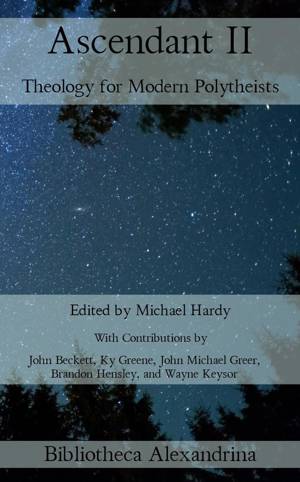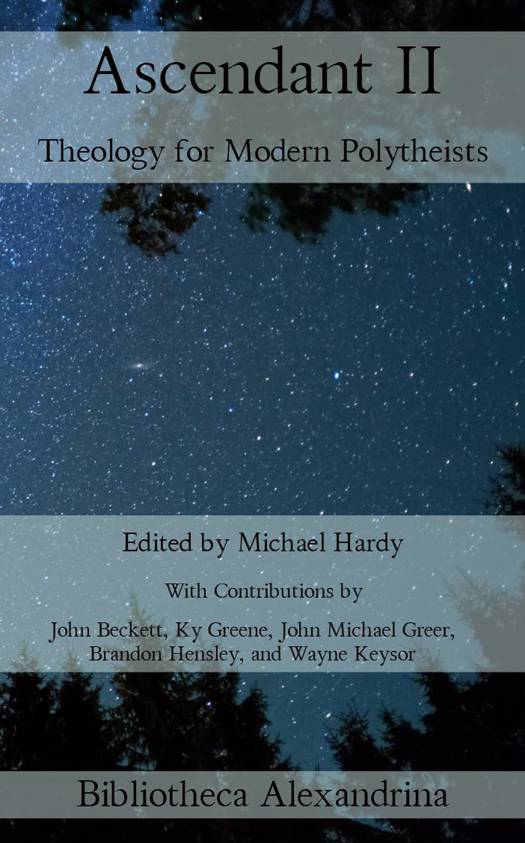
- Afhalen na 1 uur in een winkel met voorraad
- Gratis thuislevering in België vanaf € 30
- Ruim aanbod met 7 miljoen producten
- Afhalen na 1 uur in een winkel met voorraad
- Gratis thuislevering in België vanaf € 30
- Ruim aanbod met 7 miljoen producten
Ascendant II: Theology for Modern Polytheists E-BOOK
John Michael Greer, Brandon Hensley, John Beckett, Wayne Keysor, Ky GreeneOmschrijving
Are the Gods good? Are the Gods real? Is polytheism at odds with science? What is the place of personal experience in modern paganism? How do we deal with and define cultural appropriation? What roles do cross-cultural interpretation play in polytheist theology?
Theology provides a language and a tool set for studying theos, that is, the divine. Whether conducted by seasoned academics, armchair philosophers, or ordinary folks figuring out just what they believe, theology is the source of all interpretation of religious source texts, myth, and practice.
However, formal and scholarly theology has almost always focused on the monotheistic religions or very occasionally on Eastern polytheistic religions, such as Hinduism and Shinto. Western polytheism is seen in academia as a subject more suited for anthropology or history than theology. That has now begun to change. Various forms of contemporary paganism are gradually gaining an updated theological foundation for their practices and beliefs as modern polytheists themselves engage in theology. The first volume of Ascendant was Bibliotheca Alexandrina's entry into this exciting (new) field. It is our hope that the second volume of Ascendant, which you hold in your hands, will add to the foundation of modern pagan, polytheist theology — and that each successive volume in the series will further strengthen that foundation.
So what do you believe? What do you practice? And why?
Specificaties
Betrokkenen
- Auteur(s):
- Uitgeverij:
Inhoud
- Taal:
- Engels
Eigenschappen
- Productcode (EAN):
- 9781393759171
- Verschijningsdatum:
- 13/03/2020
- Uitvoering:
- E-book
- Formaat:
- ePub

Alleen bij Standaard Boekhandel
Beoordelingen
We publiceren alleen reviews die voldoen aan de voorwaarden voor reviews. Bekijk onze voorwaarden voor reviews.











